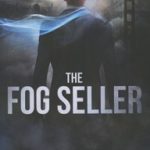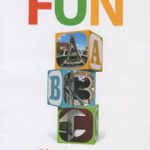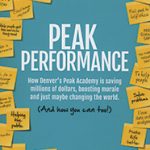 Moab, Utah by Day & Night
Moab, Utah by Day & Night
In his new book of landscape photography, Grant Collier ’96 shares the eerie beauty of earth and sky in the canyon country of eastern Utah. EXCERPT: “In my dreams, I occasionally find myself standing atop impossibly large arches or bizarre, almost whimsical pillars of stone. I will wander far too close to the edge, but I have little fear, as I am rapt in awe by the splendor of the scene. Only in the landscape around Moab do these dreams ever meld with reality. The scenery here is so otherworldly that it seems precariously balanced on the cusp of fantasy.”
 Walking with Alzheimer’s:
Walking with Alzheimer’s:
A Thirty Year Journey
This book by physician Shelly Kruse ’76 is both a personal memoir of her mother’s progressing illness and a guidebook for families and caregivers. EXCERPT: “My mother drove everyone crazy. Her favorite activity was calling out, ‘Help me, help me, help me.’ She sounded sincere and in trouble and would continue however long it took for someone to arrive. After the nurse or myself came running to ask, ‘What’s wrong, Jo?’ she would smile sweetly and reply, ‘Nothing.’ Then a few minutes later, she would do the same thing again.”
 The Fog Seller
The Fog Seller
This Sausalito-based, literary mystery from Don Daglow ’74, the creator of the Emmy Award–winning Neverwinter Nights, has won a number of awards. EXCERPT: “Liam the Fog Seller stands atop the round concrete bench in the Powell St. BART station, 50 feet below the streets of San Francisco. He wears a black satin top hat, a tuxedo with tails, baggy black pants, neon yellow T-shirt and a diaphanous pale blue scarf. “Ladies and Gentlemen!” he proclaims, drawing a glare from an old Chinese woman sitting nearby. “The trains that roll through this station will take you away from this place and time!”
 Rosa’s Very Big Job
Rosa’s Very Big Job
With illustrations by Sarah Vonthron-Laver, this children’s book by Ellen Mayer ’74, about a spunky preschooler named Rosa who enlists her imaginative grandfather to lend a helping hand to her busy mom, is part of Mayer’s new series of “Small Talk Books,” which are designed to demonstrate practical techniques parents can use to facilitate language development in their children. Other titles in the series include Cake Day, with illustrations by Estelle Corke, and a pair of board-books titled Red Socks and A Fish to Feed, both illustrated by Ying-Hwa Hu.
 The Legacy of the Moral Tale:
The Legacy of the Moral Tale:
Children’s Literature and the English Novel, 1744–1859
Patrick Fleming ’05 traces the rise of the moral tale in children’s literature and its impact upon such authors as Charles Dickens and Maria Edgeworth. EXCERPT: “By the time he wrote Great Expectations, Dickens had changed his didactic narrative style. Unlike his earlier novels, Great Expectations does not take the form of an example illustrating a moral precept, rewarding the virtuous characters and punishing the villains. If Great Expectations is to succeed in its didactic goals, the experience of reading the novel must accomplish this task.”
 Alphabet Fun:
Alphabet Fun:
Playing ‘Eye’
In her new children’s book, based on a game she plays with her grandchildren, Alice Ronald ’63 teaches imaginative observation using photographs of found alphabet letters in everyday objects. “When I was little,” she explains, “my father played a game with my brother and me. It was called Playing Eye. We looked for animal shapes in the clouds or slightly different colors and shapes in trees or flowers or rocks. Playing Eye trains young minds to observe and to use the artistic parts of their brains. I am continuing the Playing Eye game with my grandchildren.”
 Preparing to Teach Social Studies for Social Justice:
Preparing to Teach Social Studies for Social Justice:
Becoming a Renegade
Nick Henning ’95 and co-authors Ruchi Agarwal-Rangnath and Alison Dover offer a guide to teaching justice-oriented social studies classes within the Common Core State Standards. EXCERPT: “Before the beginning of each school year, every teacher is faced with the important content-focused curricular question, “What will I teach?” Embedded within this question are the corollary questions, “What do I want to teach?” and “What am I supposed to teach?” For most justice-oriented teachers in accountability driven classrooms, the answers to these two questions often do not match…”
 Peak Performance:
Peak Performance:
How Denver’s Peak Academy Is Saving Millions of Dollars, Boosting Morale and Just Maybe Changing the World. (And How You Can Too!)
J.B. Wogan ’06 joins co-author Brian Elms, a founding member of Denver’s Peak Academy, to offer a guide to improving organizational performance. EXCERPT: “It’s the small innovations that can transform a process—and the small questions that can cause you to reexamine the way something’s always been done. When you’re looking for an opportunity to innovate, think small, and ask yourself this question: Is there anything you do just because it’s always been done that way?”
